Camping is a great activity to enjoy nature, refresh yourself, perhaps meet new people, and just spend some quality time with your friends and family. To ensure that you have enough energy while camping, bringing eggs, which are a good source of protein, is essential.
However, bringing eggs on your camping trip might be challenging because they easily break, and improper storage can lead to food poisoning from salmonella.
Fortunately, there are ways you can properly store eggs for camping, including using the right container, boiling them, and bringing powdered eggs, among others. As we go through this article, we’ll discuss the details of each method.
Table of Contents
How to Store Eggs for Camping
1. Boil the Eggs

Perhaps boiling eggs is one of the easiest methods to store eggs for camping.
To do this, simply put the eggs in a pot filled with water. Then, bring the water to a boil and allow the eggs to cook for 4 to 10 minutes, depending on how runny you want them to be.
Basically, the longer you boil them, the harder they will be.
Simply put the hard-boiled eggs in a container. Then just peel them before eating.
If you bring sliced bread and mayonnaise, you can chop the boiled eggs into small pieces and add some mayonnaise to make a sandwich filling.
2. Bring Powdered Eggs Instead (AKA Dehydrated Eggs)

Powdered eggs, or dehydrated eggs, may not taste as good as the fresh ones, but they sure provide you with enough nutrition for your camping trip. Dehydrated eggs are available in various local grocery stores.
The good thing about powdered eggs is that they have a long shelf life. Unopened, they can last up to 10 years.
Once the package has been opened, the shelf life decreases to about a year, which is still pretty long.
To use, simply mix powdered eggs with some water and cook them in a pan to make scrambled eggs.
While they cost about twice as much as fresh eggs, powdered eggs on a camping trip will ensure that you are not at risk of food poisoning.
3. Put Precracked Eggs in a Secure Container
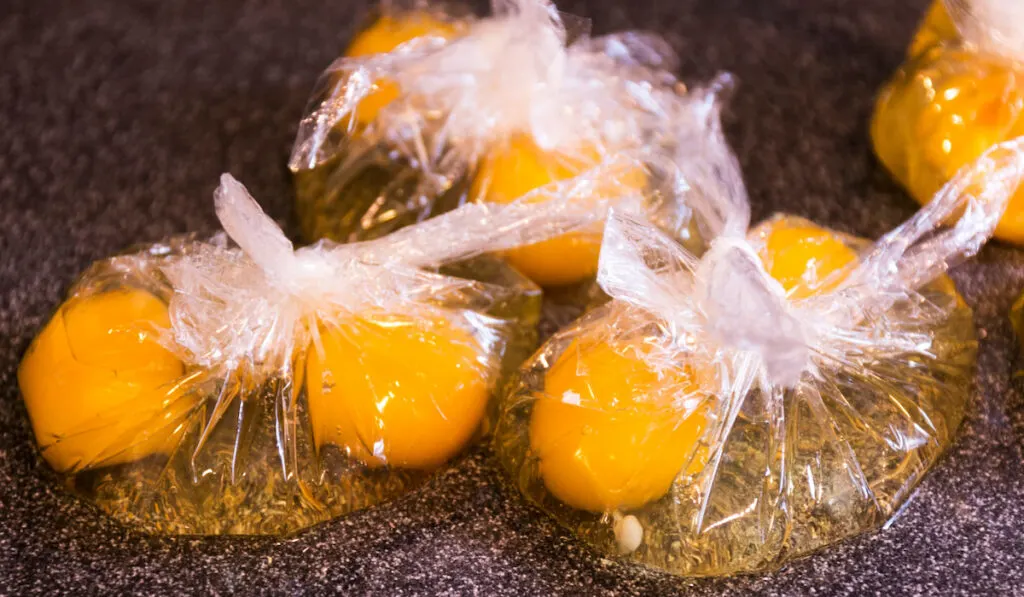
If you prefer to bring raw eggs, you can do so by cracking them and putting them into a plastic bag or Ziplock bag. This saves you extra space in your backpack.
We highly recommend you use two plastic bags to avoid leakage.
Another way you can bring raw eggs is by cracking them and putting them into a plastic bottle. Just ensure to tightly seal the bottle cap after opening it to make sure that there’s no spillage.
Here are a few things to note when using this method:
- Don’t bring raw eggs if your camping trip will last for an extended period and you don’t have a cooler to keep your eggs from going bad. This is because once you break the egg, you risk contamination from bacteria.
- Keep in mind that a yolk that mixes with the white makes the egg’s pH level neutral, which is ideal for bacterial growth. Instead, you can put the yolks and whites in a separate container before storing them.
- Put the bottle or container in a cool, dark place. If you have a cooler, that’s much better.
- Precracked eggs can be consumed within two days, provided that proper storage is followed. Therefore, using precracked eggs is only ideal for a short weekend trip. If you are not able to cook the eggs on time, all of them might spoil. You can lengthen their shelf life by using the next method.
4. Freeze the Eggs
We all know that freezing helps lengthen the shelf life of any food. You can do the same to eggs.
Before leaving, break the eggs and separate the whites from the yolks. Freeze them overnight and transfer them to a cooler when you’re about to leave.
Don’t put eggs that are still in their shell in the freezer because the freezing temperature can cause the liquid to expand, thus causing the shells to break.
5. Carry Whole Eggs in a Secure Container

If you want to bring whole eggs to the campsite, you can do so. However, there are two factors that you need to consider.
First, you must keep the eggs at a temperature below 45°F or 7°C. You can do this by investing in a cooler or an insulated bag with ice.
Second, secure the packaging so that the eggs don’t get broken. Eggs are fragile; they can easily crack if they get constantly bumped in the car or while you are walking to the campsite.
Here are some ways you can safely store whole eggs:
Use an Egg Holder
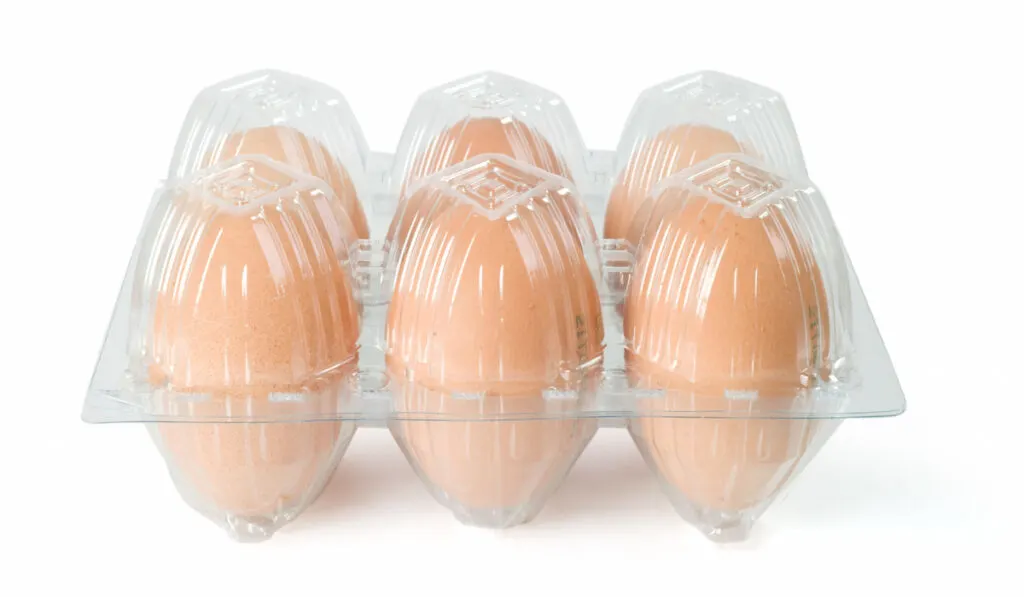
There are plastic egg holders which you can buy online or locally. Make sure to invest in a good-quality egg holder that has a secured lid.
Simply put the fresh eggs on the egg holder and pop them into your backpack. For additional protection, you can put the egg holder between the layers of your clothes.
The only drawback to an egg holder is that it takes up a great deal of space in your backpack. Alternatively, if you have a cooler, you can place it there instead to keep the eggs cool.
Pack Eggs in a Water Bottle

To do this, you will need a water bottle with a wide mouth but a narrow body to ensure that your eggs do not move so much. Gently stack the eggs inside the water bottle, then add some cold water before closing the cap.
Cold water will protect your egg from bumps, and it will also keep your eggs cool.
If there’s cold water available at the camping area, you can also change the water from time to time so that your eggs stay cold.
Carry Eggs in a Container Filled With Rice
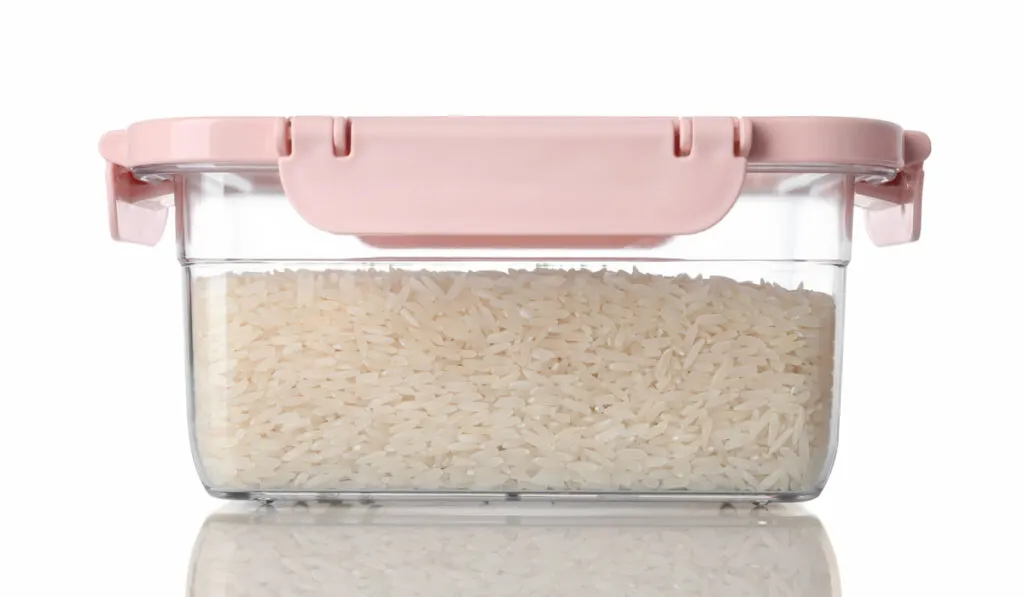
You can also use a regular container with a secured lid. Add the eggs, and then fill it with rice instead of water.
Grains of rice are excellent at absorbing shocks, thus protecting your eggs from cracking. However, be mindful of the storage temperature. Remember, eggs must be below 45°F or 7°C.
Wrap Each Egg in Newspaper or Bubble Wrap
This might be time-consuming, but it will surely do the job.
Wrap each egg in a newspaper or bubble wrap before placing them in a secured container. Wrapping the eggs will provide additional protection from the shocks that the eggs may receive during transit.
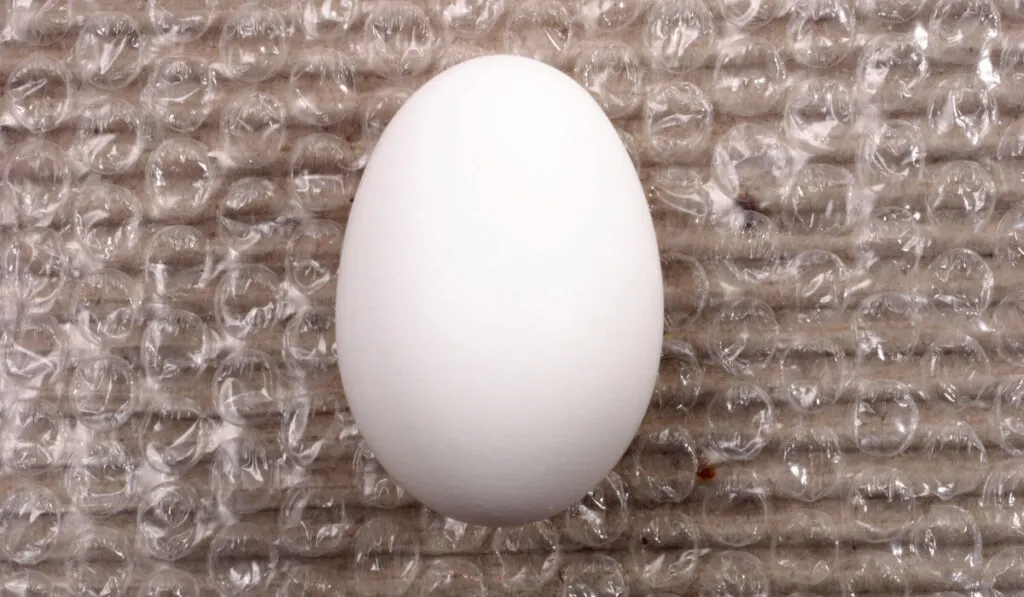
Coat the Eggs With Mineral Oil
This is, indeed, not one of the most popular methods of storing eggs for camping trips, but it does the job of increasing the egg’s shelf life.
Before storing whole eggs, you can coat them with mineral oil to last longer.
Eggs coated in mineral oil can last six months to a year if kept below 45°F.
Risks of Bringing Eggs on a Camping Trip
1. Salmonella Infection

Salmonella is a bacteria that a person gets from eating undercooked eggs or chicken, contaminated water, and other foods.
Salmonella affects a human’s intestinal tract. Some of the symptoms include vomiting, fever and chills, headache, and diarrhea.
While most humans recover from salmonella poisoning, it is possible for the infection to be life-threatening.
When the eggs you brought get contaminated from improper storage, you increase the risk of salmonella contaminating it. Therefore, it is vital to ensure that the eggs do not get too warm.
Additionally, check if the eggs are fully cooked before consuming them. As mentioned, you can get salmonella from eating undercooked eggs.
It is just as important to ensure that the kitchen tools you use when camping are clean and sanitized.
2. You Will Need to Bring Other Options
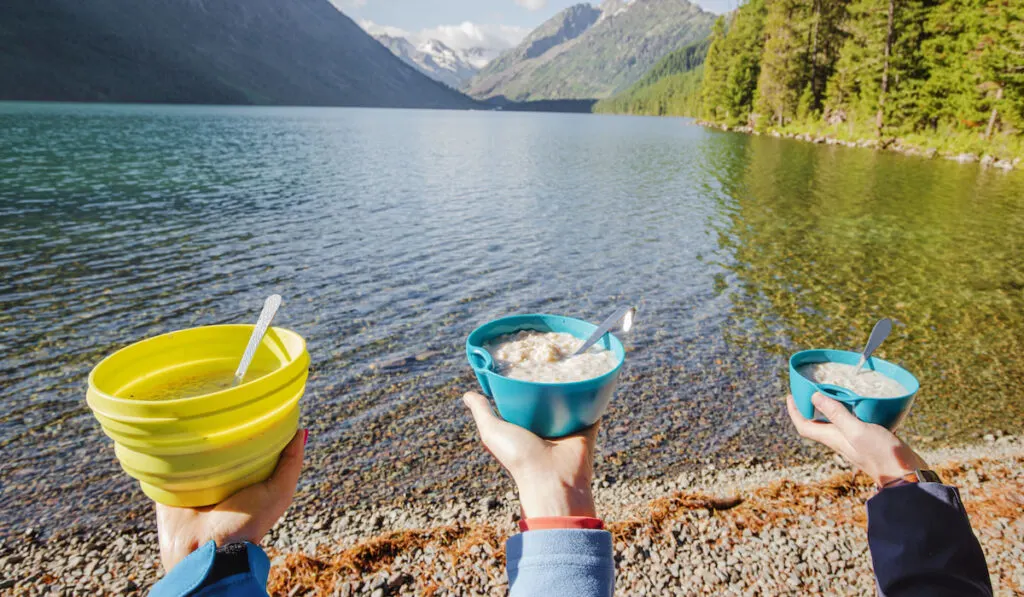
An egg is not a reliable food to bring on a camping trip because of the risks mentioned above. Therefore, it is a good idea to bring extra easy food to prepare and eat, such as trail mix, oatmeal, granola, and other foods you can eat for breakfast.
How to Know if an Egg Is Still Good to Eat
If you doubt that the eggs you brought can still be eaten safely, you can try the following safety tests:
1. Float Test

The float test is a good way of testing if your eggs are still safe to eat.
Simply put the eggs in a glass, a bowl, or a pan filled with water. If the eggs sink, then that means that they are very fresh and safe to cook and eat.
If the eggs float, then you should discard them.
2. Smell Test
Another way to test the egg’s freshness is its smell. A rotten egg will, indeed, smell rotten. Some eggs are so rotten that they already have a foul smell even before they are cracked open.

Conclusion
So long as you know how to properly store eggs for camping, you will have an easy-to-cook, versatile ingredient that can give you loads of nutrients and energy you never knew you needed on your camping trip.
However, there are risks involved when bringing eggs on a camping trip, so make sure to strictly follow the right way of storing them. It is always a good idea to invest in a cooler or insulation box to lengthen the fresh egg’s shelf life.
Nonetheless, it is much safer to go for powdered eggs, especially if you’re going for a long camping trip and the weather is hot.
